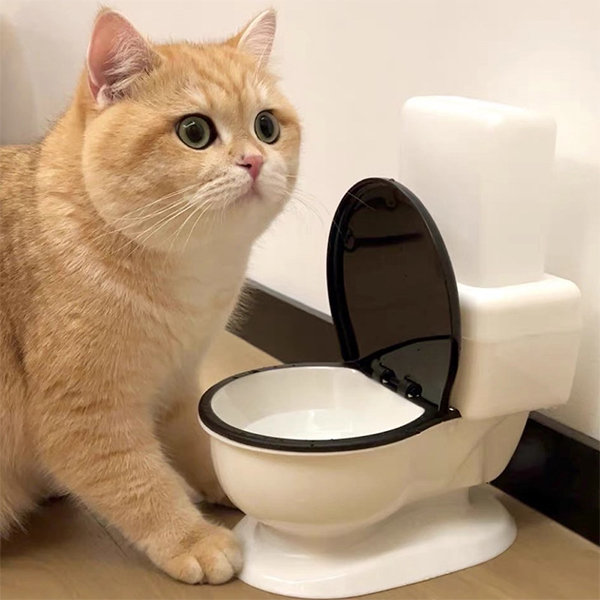How do you actually feel with regards to Can You Flush Cat Poo or Litter Down the Toilet??

Introduction
As feline proprietors, it's necessary to be mindful of just how we deal with our feline good friends' waste. While it might seem practical to purge pet cat poop down the toilet, this method can have destructive consequences for both the environment and human wellness.
Alternatives to Flushing
Thankfully, there are more secure and extra accountable methods to deal with pet cat poop. Consider the following options:
1. Scoop and Dispose in Trash
One of the most usual approach of throwing away feline poop is to scoop it right into a naturally degradable bag and throw it in the garbage. Be sure to make use of a committed clutter scoop and get rid of the waste promptly.
2. Usage Biodegradable Litter
Choose biodegradable feline trash made from products such as corn or wheat. These trashes are environmentally friendly and can be securely gotten rid of in the trash.
3. Hide in the Yard
If you have a lawn, consider burying feline waste in an assigned area away from veggie yards and water sources. Make certain to dig deep adequate to avoid contamination of groundwater.
4. Set Up a Pet Waste Disposal System
Purchase a pet dog garbage disposal system particularly developed for feline waste. These systems utilize enzymes to break down the waste, lowering odor and ecological effect.
Health Risks
Along with environmental concerns, flushing cat waste can also position health and wellness threats to humans. Pet cat feces may contain Toxoplasma gondii, a bloodsucker that can create toxoplasmosis-- a possibly extreme health problem, especially for pregnant women and individuals with weakened body immune systems.
Environmental Impact
Flushing feline poop introduces damaging virus and parasites right into the water, posing a significant danger to marine ecosystems. These impurities can negatively influence aquatic life and concession water top quality.
Conclusion
Responsible family pet ownership expands past offering food and shelter-- it also involves correct waste administration. By refraining from purging pet cat poop down the bathroom and going with alternate disposal methods, we can minimize our environmental footprint and secure human health and wellness.
Why Can’t I Flush Cat Poop?
It Spreads a Parasite
Cats are frequently infected with a parasite called toxoplasma gondii. The parasite causes an infection called toxoplasmosis. It is usually harmless to cats. The parasite only uses cat poop as a host for its eggs. Otherwise, the cat’s immune system usually keeps the infection at low enough levels to maintain its own health. But it does not stop the develop of eggs. These eggs are tiny and surprisingly tough. They may survive for a year before they begin to grow. But that’s the problem.
Our wastewater system is not designed to deal with toxoplasmosis eggs. Instead, most eggs will flush from your toilet into sewers and wastewater management plants. After the sewage is treated for many other harmful things in it, it is typically released into local rivers, lakes, or oceans. Here, the toxoplasmosis eggs can find new hosts, including starfish, crabs, otters, and many other wildlife. For many, this is a significant risk to their health. Toxoplasmosis can also end up infecting water sources that are important for agriculture, which means our deer, pigs, and sheep can get infected too.
Is There Risk to Humans?
There can be a risk to human life from flushing cat poop down the toilet. If you do so, the parasites from your cat’s poop can end up in shellfish, game animals, or livestock. If this meat is then served raw or undercooked, the people who eat it can get sick.
In fact, according to the CDC, 40 million people in the United States are infected with toxoplasma gondii. They get it from exposure to infected seafood, or from some kind of cat poop contamination, like drinking from a stream that is contaminated or touching anything that has come into contact with cat poop. That includes just cleaning a cat litter box.
Most people who get infected with these parasites will not develop any symptoms. However, for pregnant women or for those with compromised immune systems, the parasite can cause severe health problems.
How to Handle Cat Poop
The best way to handle cat poop is actually to clean the box more often. The eggs that the parasite sheds will not become active until one to five days after the cat poops. That means that if you clean daily, you’re much less likely to come into direct contact with infectious eggs.
That said, always dispose of cat poop in the garbage and not down the toilet. Wash your hands before and after you clean the litter box, and bring the bag of poop right outside to your garbage bins.
https://trenchlesssolutionsusa.com/why-cant-i-flush-cat-poop/

Do you like reading up on How to Dispose of Cat Poop and Litter Without Plastic Bags? Make a review directly below. We'd be interested to see your responses about this page. Hoping to see you back again in the near future. Do you know anybody else who is excited about the niche? Please feel free to promote it. I recognize the value of reading our article about Can You Flush Cat Poo or Litter Down the Toilet?.
Get Quote Now